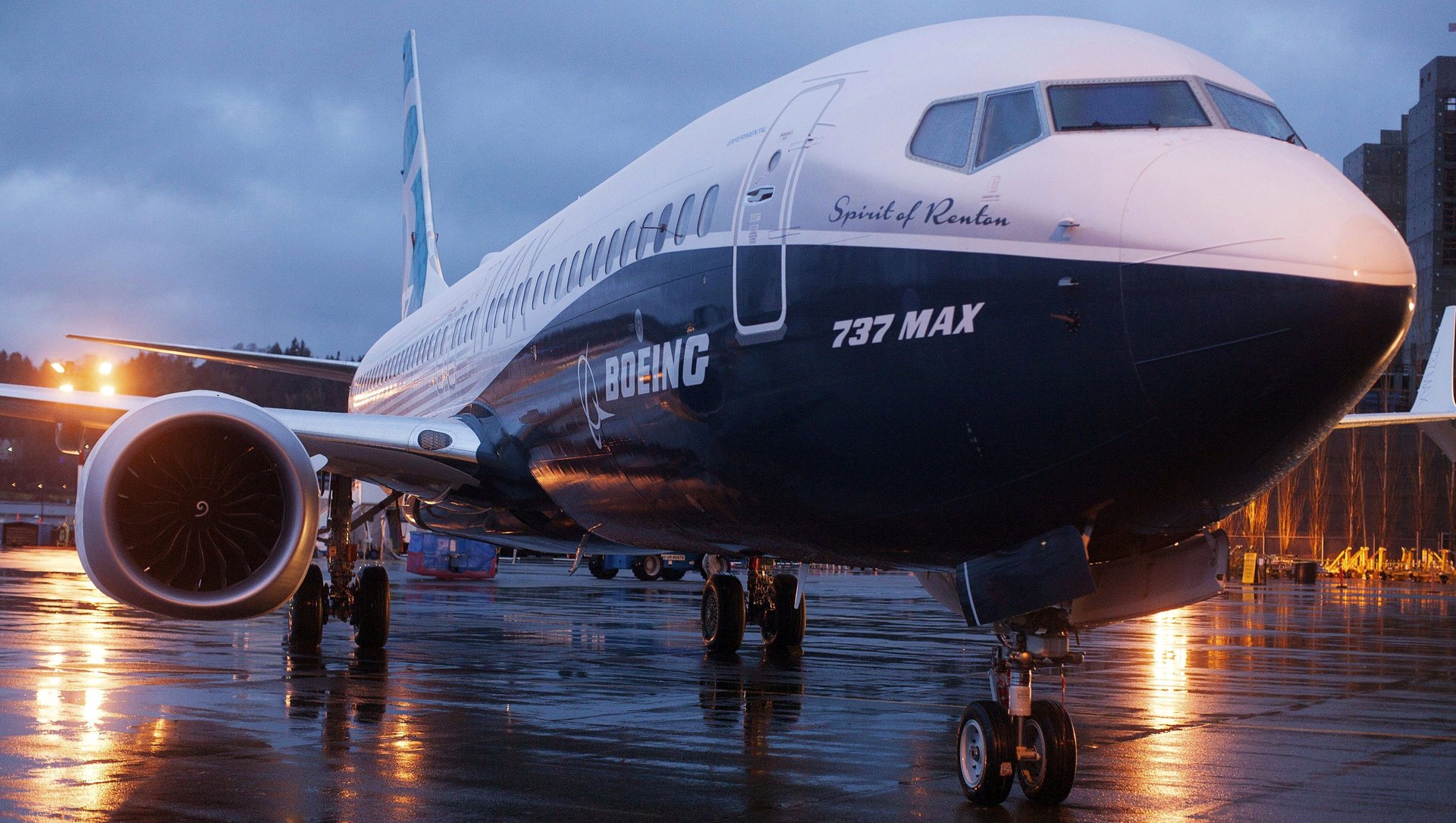Boeing ended the week worth $25 billion less than it started
For Boeing, the week began with the terrible news from Ethiopia that one of its 737 Max aircraft had crashed shortly after takeoff, killing all 157 people on board. It ended with all of the next-generation model—some 300 planes in operation—grounded across the world. Well over 4,000 737 Max planes are on order but yet to be delivered, representing a huge liability to Boeing if it can’t convince buyers that the aircraft is safe.


For Boeing, the week began with the terrible news from Ethiopia that one of its 737 Max aircraft had crashed shortly after takeoff, killing all 157 people on board. It ended with all of the next-generation model—some 300 planes in operation—grounded across the world. Well over 4,000 737 Max planes are on order but yet to be delivered, representing a huge liability to Boeing if it can’t convince buyers that the aircraft is safe.
As investigators look into the cause of the Ethiopian Airlines crash, Boeing’s share price has fallen by more than 10% from a week ago, when it hovered near all-time highs. The company, an influential component of the benchmark Dow Jones Industrial Average, is now worth $25 billion less in market capitalization than it was at this time last week. Airlines are shuffling their fleets to cover for the 737 Max groundings, and some are demanding compensation from Boeing for the extra costs.
The worldwide grounding of the 737 Max followed evidence that the Ethiopian Airlines flight shared a similar profile to a Lion Air crash in Indonesia, in which a 737 Max went down in October, killing 189 people. This suggests that flawed pilot-assistance software that is suspected in the Lion Air crash may also be a factor in the Ethiopian tragedy.
News that a software fix is on the way boosted Boeing’s shares on Friday. The company is still worth well over $200 billion, more than twice its closest rival in the commercial aviation industry, Airbus. The two companies dominate the market for jetliners, giving buyers few alternatives.
Some investors are second-guessing the case for buying Boeing’s shares. The company has been a remarkable run in recent years, up more than 200% over the past five years, versus a 50% gain in the S&P 500 over the same period. This week’s decline reversed a small part of that rally, but analysts aren’t rushing to cut their forecasts for the stock. More than 80% of brokers tracked by FactSet have a “buy” rating on Boeing, with an average target price that’s 20% up on today’s level—back to where shares traded before the Ethiopian crash, and then some.